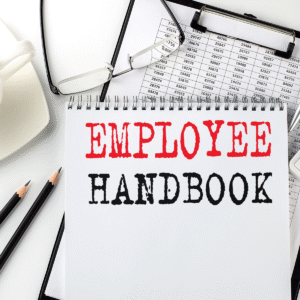Utah At-Will Employment: Can You Be Fired Without Notice?

When we think of summertime, we commonly think of warm weather, swimming at the local public pool, and grilling hamburgers outside with family and friends. Children are out of school, and families go on vacation. But for many high school, college, and graduate students, summer is a time for employment and internships.
Summer jobs typically last about three months, and their positions usually consist of food service, retail, construction, outdoor recreation roles, and office staff. These positions generally require less credentials and are very interchangeable, allowing employers to fire and hire new summer employees quickly and efficiently. This reality raises a common question: even though I am only employed for a short time, can my seasonal employer fire me without notice?
At-Will Employment: What It Means for Seasonal Jobs in Utah
The short answer is yes, to a certain extent. In Utah, like every other state except Montana, most employees are considered at-will, unless this arrangement is altered by a written or implied agreement that changes it. Utah law presumes that an employment agreement that does not have a specified term of duration is at-will. This means employers may fire employees “for any reason, or no reason at all, at any time.” The at-will doctrine benefits employees the ability to quit their job at any time and for any reason. However, this freedom also comes at a cost. Employers may also fire their employees for any reason or for no reason at all at any time.
Do At-Will Employees Have Any Legal Protections?
Absolutely. Utah law further clarifies that even if an employee is at-will, an employer may fire an employee “without extending any procedural safeguards to an employee, except as required by law.”
3 Legal Exceptions to At-Will Termination for Seasonal Employees

Agreements Can Override At-Will Employment
Seasonal employee can protect themselves from a termination without notice if their employer violates an agreement between the parties that the employee cannot be fired without cause or without notice. If an employer promises, either directly or through conduct, that an employee cannot be fired without cause or notice, this may overcome the at-will presumption.
These agreements can be created during the interview process, at the onset of employment, or even during the employment. Evidence of these agreements may be found in employment manuals, oral agreements, and all circumstances of the relationship which demonstrate the intent to terminate only for cause or to continue employment for a specified period.
Though it may be harder to prove an implied agreement than an written agreement, employees can look to the conduct of their employer, personnel policies, trade or industry practices, or other circumstances to show that their employer made such a promise. It is important to remember, however, that an implied-in-fact promise cannot go against a written contract term.
If the provisions of your seasonal employment contained language stating that you cannot be fired without just cause or notice, or if your employer impliedly informed you of the same, you may have an actionable claim against your employer if you were fired without notice or cause.
Termination in Violation of State or Federal Law
Another protection arises if the termination violates state or federal statutes. Every non-federal employee or prospect employee, no matter how long they have been or will be tenured, is protected from discriminatory actions by their employer.
Relevant statutes include:
- Title VII of the Civil Rights Act of 1964 (protecting against discrimination based on race, color, religion, sex and national origin);
- Americans with Disabilities Act (ADA) (protecting against discrimination on the basis of disability); and
- Age Discrimination in Employment Act (ADEA) (protecting non-federal employees and prospect employees 40 years or older from discrimination on the basis of age).
This means that, if you have reason to believe that your seasonal employer fired you for one of the reasons stated above, you may have an actionable claim against them.
Violations of Clear and Substantial Public Policy
Finally, seasonal employees can be protected from a fire without notice if their firing was a clear violation of a substantial public policy. Courts evaluate public policy exceptions based on:
- Whether the rule or policy comes from clear and reliable sources, like state laws, the state constitution, or past court decisions.
- Whether the rule is meant to protect the public in general, not just the specific employer or employee involved.
- Whether there are other important rules or interests that outweigh this rule.
Examples of Public Policy Violations

Refusal to Commit Illegal Acts
The Utah Supreme Court, as a general proposition, stated that persons who are terminated from their employment because they refuse to engage in illegal activities that contravene the clear and substantial public policy of the state of Utah can be actionable against their employer. A basic example of this is if your employer fires you for refusing to put a hazardous or harmful item in a food product that the employer is selling to customers. As such an action would violate Utah Code Ann. § 4-5-401, an employee has a right to refuse to obey the command without fear of retaliation.
Exercising Legal Rights
Employees who get fired for exercising legal rights such as serving jury duty, taking family leave, medical leave, or whistleblowing are also considered violations of public policy. If you have reason to believe that your seasonal employer has fired you without notice for any of these reasons, you may be entitled to damages.
Know Your Rights as a Seasonal Employee in Utah
Seasonal jobs are valuable opportunities for students and young professionals. These positions appear, and generally are, more replaceable than most full-time careers. Regardless, employers must ensure that they do not terminate their seasonal employees for unlawful reasons. Firing someone without notice may be legal under Utah’s at-will doctrine, but protections exist against discriminatory, retaliatory, or otherwise unlawful terminations.
Protect Your Rights if You Have Been Wrongfully Terminated
If you believe you were wrongfully terminated from your seasonal job, consult with an employment law attorney to understand your rights. At Christensen & Jensen, we help employees navigate these legal questions and protect their interests.
Citations:
- Ryan v. Dan’s Food Stores, Inc., 972 P.2d 395, 400 (Utah Sup.Ct. 1998).
- Id. (quoting Fox v. MCI Communications Corp., 931 P.2d 857, 859 (Utah 1997)) (emphasis added).
- Berube v. Fashion Centre, 771 P.2d 1033, 1044 (Utah Sup.Ct. 1989).
- Id.
- Ray v. Wal-Mart Stores, Inc., 2015 UT 83, ¶14-15, 359 P.3d 614 (Sup.Ct.).
- Pang v. Int’l Document Servs., 2015 UT 63, ¶27, 356 P.3d 1190 (Sup.Ct.).


